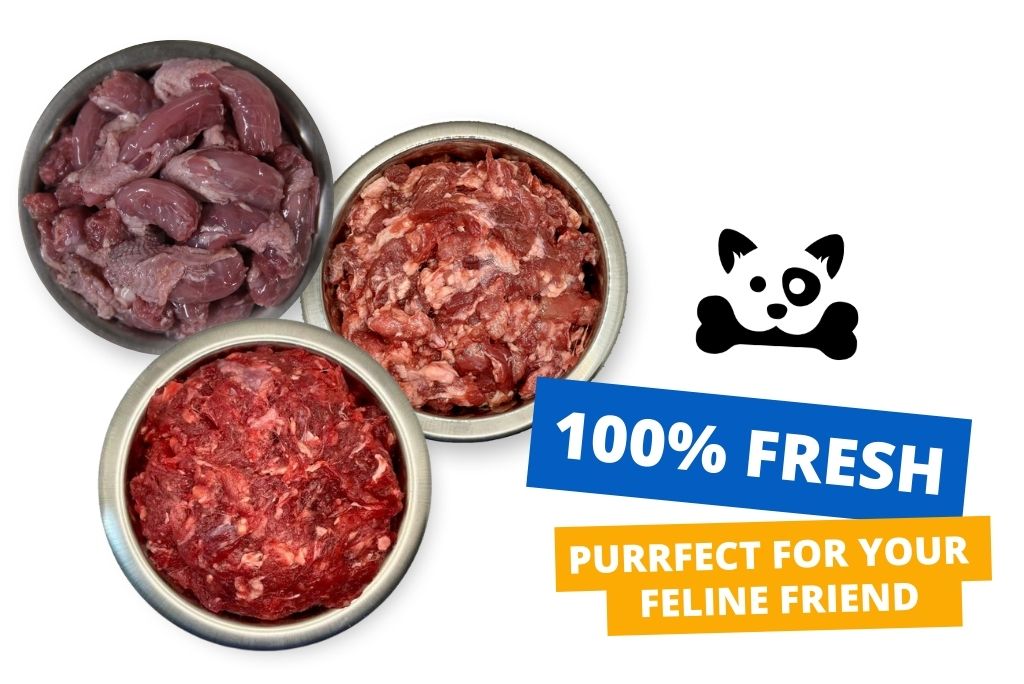
Feeding Your Finicky Feline: A Guide to Cat Food for Picky Eaters
Cats are often known for their fickle and strong-willed, independent nature, and this can be no different when it comes to their food. Owners of a fussy cat will know all too well the struggle of trying to get goodness into their feline friend, and finding the best cat food for picky cats may feel impossible, but we promise you it’s not!
There are many reasons why your cat might become fussy; from a distaste for their food, a disruption to their routine or portion size, to more serious issues such as stress or underlying health conditions. Whatever the reason, it is important to get to the bottom of it to ensure that your feline friend is receiving all the goodness they need.
We are going to take a look at why you may have a picky cat, how to deal with this issue and manage your cat’s behaviours, as well as what is the best food for finicky cats.
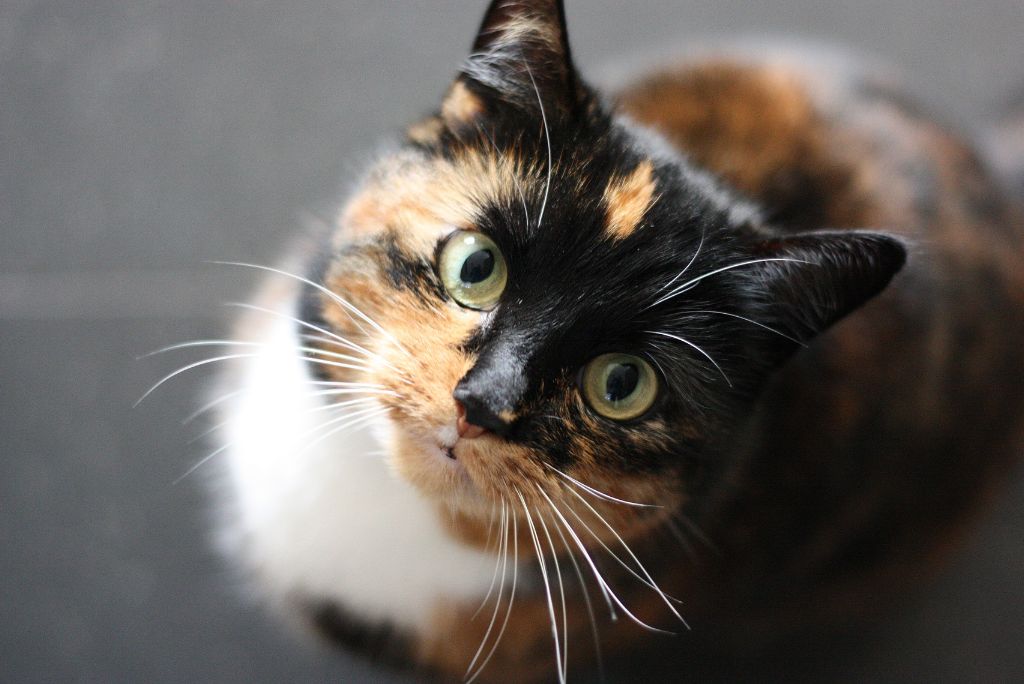
My cat is a picky eater - reasons why your cat is a fussy eater
They don’t like the taste
Cats can be very particular when it comes to the taste or texture of their food, if they decide they don’t like something they can make it very tricky for their human to find a food that fits. Cats will usually be more drawn to fresh or wet food, however mixing things up with kibbles they can snack on during the day can keep things interesting.
Portion size
Cats tend not to eat large portions in one go, so if you find your kitty is only eating small amounts in one go it could be down to the fact there is too much on their plate.
Disruption to or lack of routine
Cats are often known for their sensitive nature and finicky habits, so if their routine is disrupted or thrown off kilter then their eating patterns can take a hit.
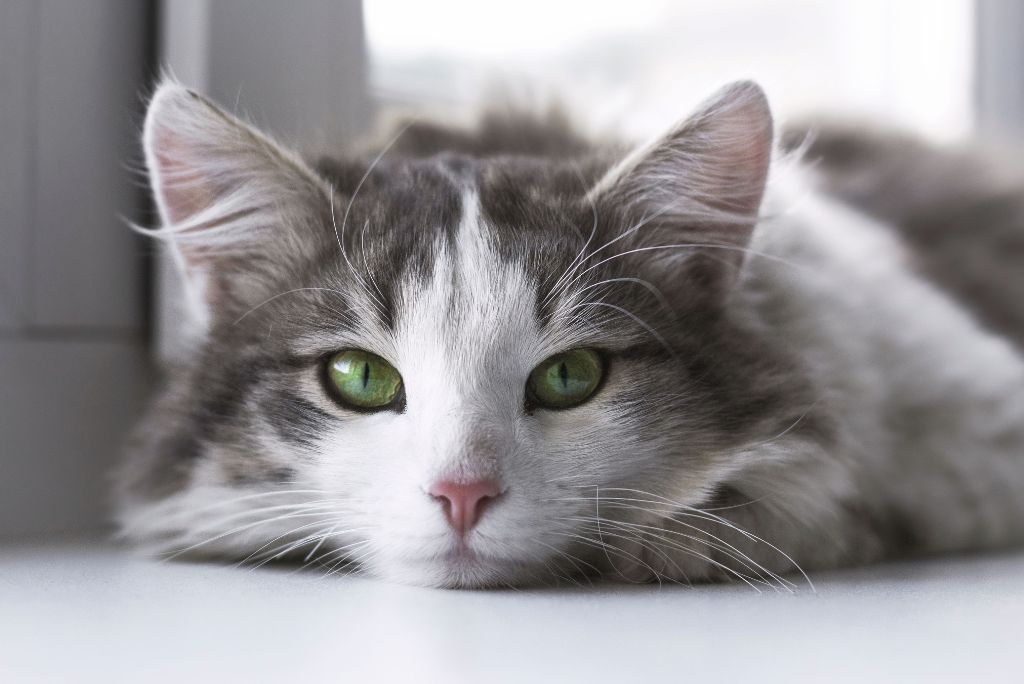
Environment
Similarly to a routine disruption, cats can be particularly affected by a change in their environment. Whether it’s the arrival of a new baby or pet, house move or even just slightly new smells or sounds, various environmental factors can set off their internal alarm bells and affect their desire to eat.
Stress or anxiety
Anxiety or stress can play a big part in why your cat may lose their appetite, and so if your cat is avoiding eating or only eating small amounts it can be a sign they are struggling emotionally.
Health issues
Avoiding eating or only eating small amounts could signify an underlying health issue in your cat. If your cat seems to be in obvious discomfort during or after eating, or is presenting with other symptoms alongside avoidant behaviour, it is important to consult your vet immediately.
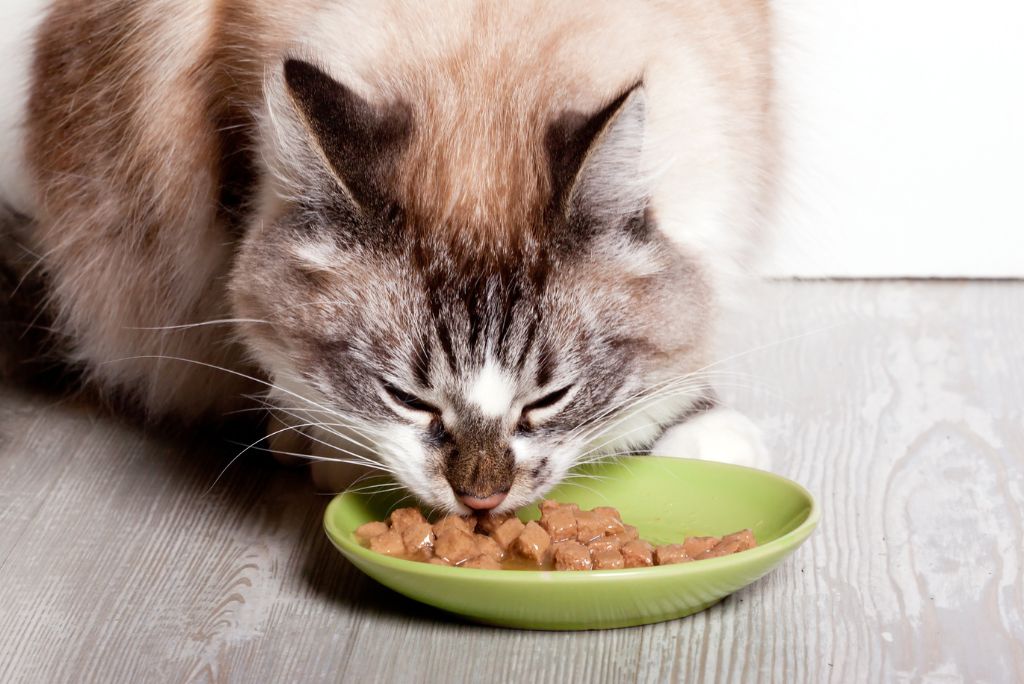
Tips for dealing with a fussy cat
After checking in with your vet and finding the root cause of your fussy feline’s eating issues, you can start looking at ways to manage the situation and get your cat’s nutrition back on track:
Diet change
If your cat seems to be turning their nose up at their food due to taste or texture, they may benefit from a diet change. This must be done gradually and under veterinary supervision to avoid digestive upsets, however if done properly can have your cat running to their dinner bowl at mealtimes.
Limit treats
Cat treats are true to their name and often do go down a treat, however if a cat gets too much of a taste for them they can start to snub their regular meals. Keeping treats to a minimum and only using them as the occasional reward will keep their tummies raring and ready for proper meals.
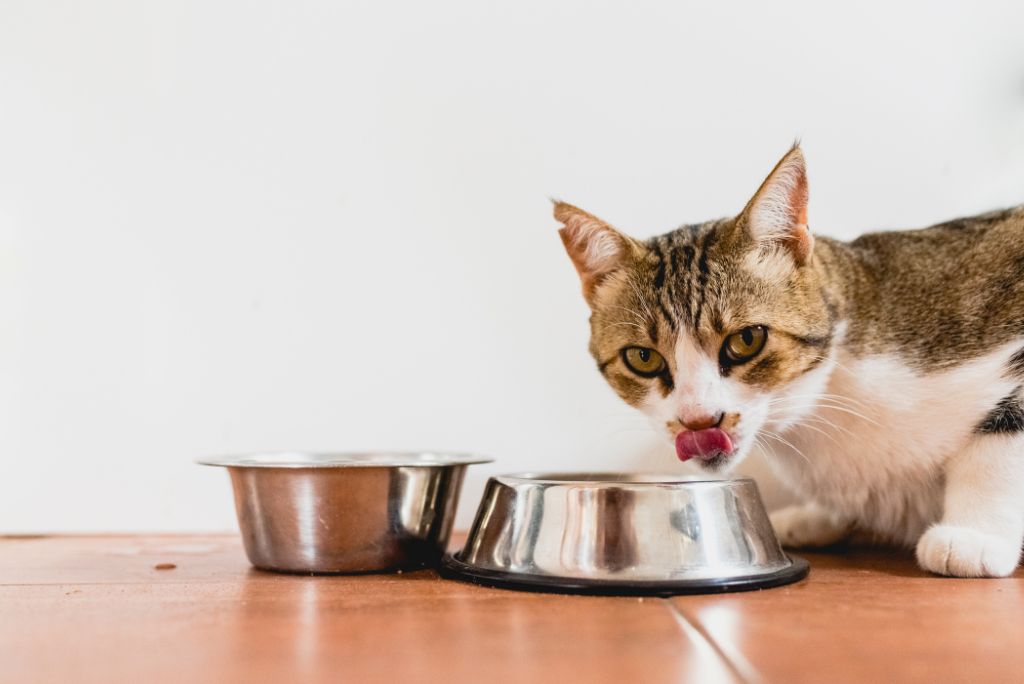
Smaller portions
Cats tend to prefer smaller portions, or to eat little and often, so providing them with smaller portions at more regular intervals may be the key to managing their avoidant food habits.
Calm environment
Felines thrive in a calm environment and are particularly sensitive to change, so keeping their food in a calm, quiet space and away from household foot traffic can help them to feel more comfortable to take the next bite.
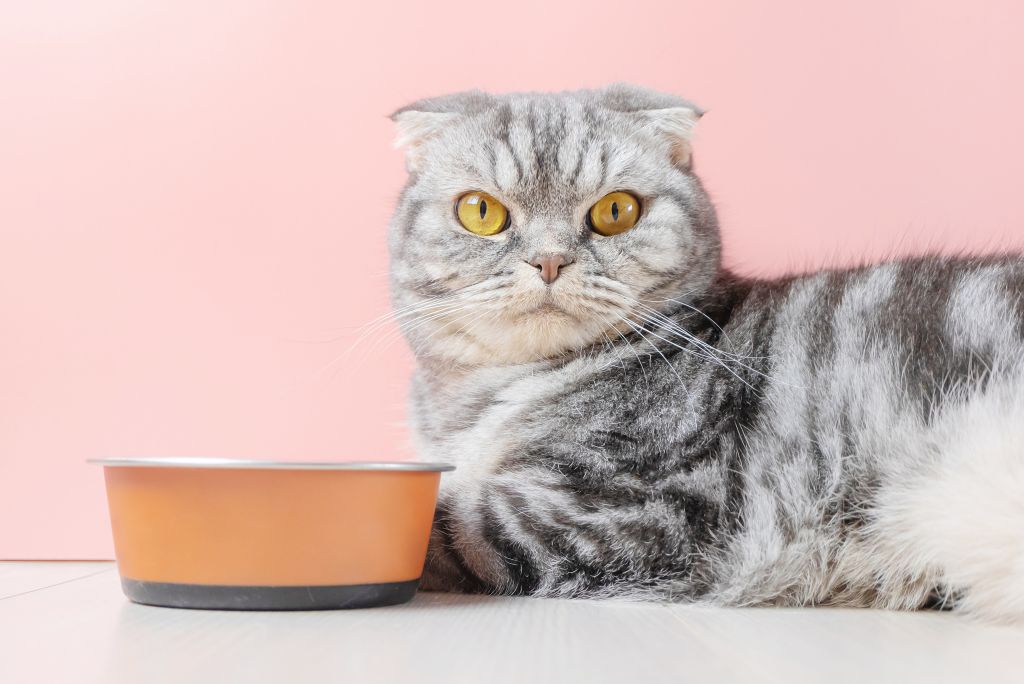
Food for fussy cats - the best cat food for picky eaters
Believe it or not, there are more diets out there for cats than just regular commercial pet foods. Of course every cat is different, and so their diet must reflect their nutrition needs and medical status.
Finding cat food for fussy cats can be made easy with good-quality, natural ingredients which are nutrient-dense and naturally support your cat’s health and development.
Before making any major changes to your cat’s diet it is important to speak to your vet, as sudden or stark changes can cause significant digestive distress to your feline friend. Once you’ve got the all clear from a medical professional, you can start slowly introducing new foods into your cat’s meals. And luckily there are some top-notch and super nutritious choices out there!
Raw food diets have shown to be beneficial to cat’s overall health and wellbeing, being naturally free from additives and preservatives, as well as being considerably gentler on your cat’s system than commercial pet foods, many of which are harder for a cat’s digestion to break down. One of the best wet foods for finicky cats, raw diets are super nutrient-dense and are actually less likely to cause an allergic reaction in your cat than commercially made foods.
Here at World 4 Pets, we offer a range of high-quality commercial pet foods, with both wet and dry cat food for picky eaters, as well as our specially-crafted fresh foods for cats.
A selection of our top recommendations include:
All created to support your cat’s health.
Likewise, if you want to feed your cat a BARF diet, you may wish to check out Big Dog BARF for Cats Kanga, Chicken and Turkey and Proudi ranges. Naturally water-dense and hydrating, feeding your cat a BARF diet can lead to healthier bowel movements, make them less prone to parasites, support their immune system and even help maintain strong muscles and a shiny coat!
Finding the best food for a fussy kitten doesn’t have to be complicated, and World 4 Pets are here to help make things easier.

